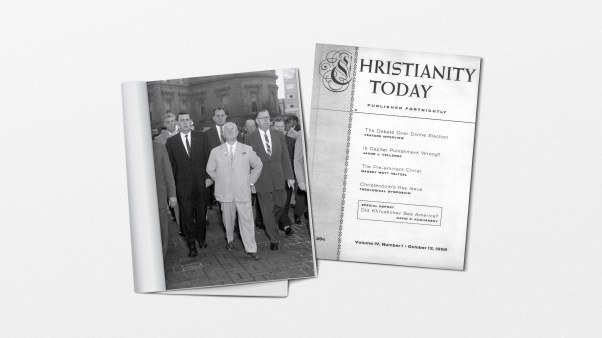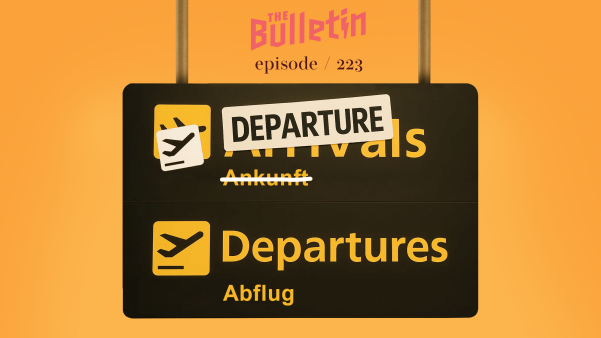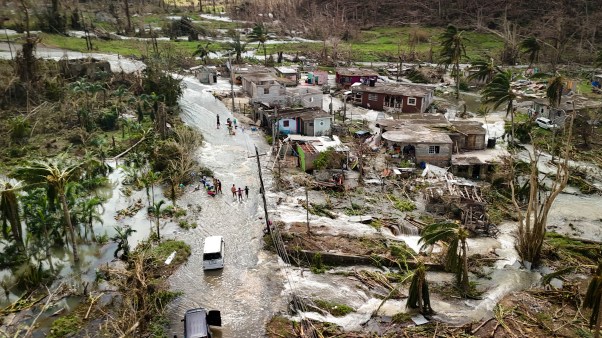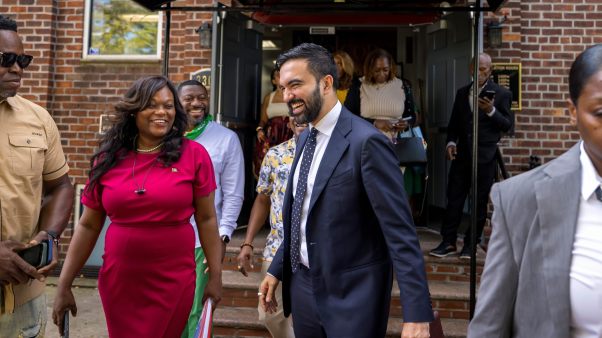Personal and institutional relations between American Jews and evangelicals are at a nascent stage. Despite the work of a few pioneers, Jews and evangelicals are only just beginning to get to know each other, to learn about each other’s faith and how our faith commitments inform our engagement in the public square. Evangelicals and Jews are taking but the first steps towards understanding their greatest joys and worst fears. How shall each of us educate the other about what matters most at this time when evangelical Christians and many others are suffering in Lebanon and the Jewish state is bordered and assaulted by two groups (Hamas and Hezbollah) that are, respectively, the majority and minority voices within their governments and that call for Israel’s destruction? What is it that evangelicals and Jews should teach each other at this moment?
We should meet in the space of a commonly shared text and principle from B’reisheet-Genesis 42:21. When the brothers stand for the first time before Joseph, they realize that the hand of God is at work. They have been brought low, and they know this is because of their past sin. And so they say to each other, “Indeed, we have sinned and are guilty because of what we did to our brother. We witnessed the pain of his very life when he pleaded with us and we did not listen. Therefore, has this trouble come upon us.”
This principle is later transformed, as is always the case in the Torah, from narrative into mitzvah, law, and commandment. The Torah uses the very language of the Joseph narrative when it teaches (Sh’mot-Exodus 22) about suffering. God says, “For indeed if he or she cry out to me, I will hear their cry, and I will become enraged with you. … and it will be when he or she cries out to me, ‘I will hear, for I am compassionate.'” It is obvious that we may not commit evil against another person. In this verse, the Torah is teaching us something new. A person may not be in a situation in which there is suffering and someone is crying out and the response is that of the brothers of Joseph: callous indifference.
We Jews involved in conversations with evangelicals must hear the cry of their suffering in Lebanon. Evangelicals must hear the cry of the Jewish, Christian, and Muslim citizens of Israel. Evangelicals must also come to hear the cry of the nation of Israel. What are the principles that we should use to understand what is happening, to more clearly discern the cries of the innocent? Yes, it is true that Hezbollah kidnapped “only” two soldiers, killed “only” eight, and fired many dozens of inaccurate missiles into Israeli towns on that day two weeks ago that initiated this latest conflagration. Yes, it is true that Israel responded with war against Hezbollah. That seems disproportional. Can the evangelical hear that Israel’s response is proportional to the threat? Or how does the evangelical imagine the proper Jewish response to the demonization of Israel, in which only one party to the conflict is held responsible from its very birth for all evil in the region?
The Torah in D’varim-Deuteronomy 20 expects the army of ancient Israel to engage in Kriah L’Shalom, suing for peace before initiating warfare. Did Israel do this? Israel did when she unilaterally withdrew from southern Lebanon six years ago. Despite sporadic hostilities inflicted across the border by Hezbollah, Israel has kept the peace. By not responding to the provocations, Israel’s message was clear: peace at almost, but not any, price. During those six years, Hezbollah (with the blood of more than 200 American Marine peacekeepers on their hands) was allowed by all those who sat in Lebanon, by all those who were in witness, to function as no group may function in a civil, democratic society, to run a military state within a state, to arm itself with thousands of rockets and missiles that have no target other than Israel’s civilian population, to develop an armed force of its own, unaccountable to the struggling democracy that is Lebanon and supported by two states that have called for the “erasure” of Israel. This is a phrase that no Christian may hear today without reminding them of what these words have birthed in the past.
It is the responsibility of the Jewish people in relationship with evangelicals to assert at one and the same time the moral obligation to practice self-defense and the acknowledgement of the suffering that brings upon the innocent. This is the dilemma of the moral person in an immoral world. There is shared responsibility. The Christian who sits in Lebanon must acknowledge that he or she, with nary a word of protest in the past six years, has witnessed this murderous group build huge stores of rockets with the purpose of raining down upon the civilian population of Israel, and to embed themselves in the midst of the civilian populations. How was it allowed that armed terrorists could take up residence in hundreds of Lebanese homes to play upon Israel’s excruciating difficulty in attacking the wicked who dwell in the midst of the righteous? And in response to this, Israel does what no other army in the world does: She announces in advance where she will bomb, thus giving the enemy the opportunity to flee. Or worse yet, to lie in ambush. When Israel bombs, and Lebanese civilians die, that is a mistake, a failure, and unintentional—and it is mourned, painfully regretted, and not forgotten. When Hezbollah rockets fall on Israeli civilians, it is purposeful, a success, and intentional—and celebrated as a victory.
It is too easy, too Clinton-esque to declare each to the other, “I hear your pain.” By this standard of the Torah, the fulfillment of hearing one’s pain lies in deeds. And deeds begin with learning the other’s circumstance. Already palpable is the Jewish people’s anguish for the loss of civilian life and for human suffering in Lebanon. There will be more of this accompanied by deeds in the days and weeks to come. This will be based on the Torah’s standard that even where there is no guilt, there is responsibility (see Devarim-Deut.21:1-9). Indeed, Israel has in the past affirmed this principle for its armed forces. And how will the evangelical world learn to hear the Israeli sense of the threat that awaits on borders where evil crouches?
These are the hard hours. We must meet in the texts that summon us. As we do so, then we can hear the voice of the other in pain and anticipation. There is no other way.
Rabbi Yehiel Poupko is Judaic Scholar at the Jewish Federation of Metropolitan Chicago.
Copyright © 2006 Christianity Today. Click for reprint information.
Related Elsewhere:
This article is one in a series of commentaries on the Hezbollah-Israel conflict.







